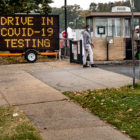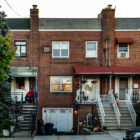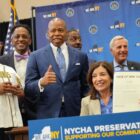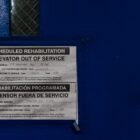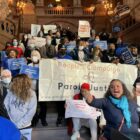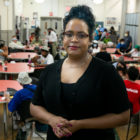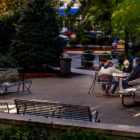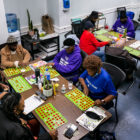CITY VIEWS: OPINIONS and ANALYSIS
Opinion: Pushing for Answers About New York’s COVID Response
Vivian Zayas |
“Families like mine deserve more from our state leaders than platitudes and delayed, toothless studies. We deserve truth, transparency and real accountability.” Adi TalwarA drive-through COVID testing site on Goulden Avenue in the Bronx in October 2020. CityViews are readers’ opinions, not those of City Limits. Add your voice today!


